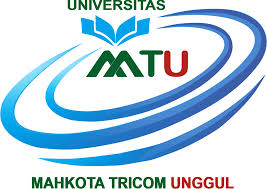Determinants of Internal Audit Effectiveness in Fraud Detection
DOI:
https://doi.org/10.55927/fjmr.v4i2.46Keywords:
Fundamental Analysis, Technical Analysis, Stock Price, Dividend Policy, Stock MarketAbstract
The aim of the research is to find out the relationship between fundamental analysis and technical analysis towards stock price. Fundamental analysis is interpreted by debt to equity ratio, earnings per share, current ratio, and return on assets. Technical analysis is interpreted by volume of trade and The Composite Stock Price Index. Furthermore, by applying dummy variable, dividend policy is applied as moderation variable to test the relationship between fundamental analysis towards the stock price as well as technical analysis towards the stock price. The population of the research is banking companies listed in IDX in 2019-2022. Technical analysis applied double regression analysis and moderated regression analysis (MRA) using SPSS 26. The findings of the research stated that technical analysis and fundamental analysis influence the stock price. Company policy to share dividends for the stock holders was proven to influence the relationship between those variables.
References
Annisya, M., Lindrianasari, & Asmaranti, Y. (2016). Pendeteksian Kecurangan Laporan Keuangan Menggunakan Fraud Diamond. Jurnal Bisnis dan Ekonomi (JBE), 23(1), 72–89.
Anthoni, R., Rachmina, D., & Andati, T. (2016). Strategi Penguatan Sistem Pengendalian Intern dalam Penatausahaan Barang Milik Daerah Kabupaten Bogor. Jurnal Manajemen Pembangunan Daerah, 8(2), 1–10. https://doi.org/10.29244/jurnal_mpd.v8i2.24822
Ashby, M. P. J. (2017). The Value of CCTV Surveillance Cameras as an Investigative Tool: An Empirical Analysis. European Journal on Criminal Policy and Research, 23(3), 441–459. https://doi.org/10.1007/s10610-017-9341-6
Asiedu, K. F., & Deffor, E. W. (2017). Fighting Corruption by Means of Effective Internal Audit Function: Evidence from the Ghanaian Public Sector. International Journal of Auditing, 21(1), 82–99. https://doi.org/10.1111/ijau.12082
Aswar, K., Ermawati, Wiguna, M., & Hariyani, E. (2020). A Conceptual Framework on the Audit Quality in the Government Internal Audit in Indonesia. Information Management and Business Review, 12(1), 22–26. https://doi.org/10.22610/imbr.v12i1(I).3012
Bello, S. M., Ayoib, A. C., & Zalina, Y. M. (2017). Investigating The Relationship Betwen Internal Audit Quality and Organisation Performnace of Public Universities Nigeria. European Journal of Accounting, Auditing and Finance Research, 5(6), 1–23.
Biksa, I. A. I., & Wiratmaja, I. D. N. (2016). Pengaruh Pengalaman, Indepedensi, Skeptisme Profesional Auditor pada Pendeteksian Kecurangan. E-Jurnal Akuntansi, 17(3), 2384–2415.
BPKP. (2020). Laporan Kinerja BPKP Tahun 2020. Jakarta: Badan Pengawasan Keuangan dan Pembangunan.
BPKP. (2021). Laporan Kinerja BPKP Tahun 2021. Jakarta: Badan Pengawasan Keuangan dan Pembangunan.
BPKP. (2022). Laporan Kinerja BPKP Tahun 2022. Jakarta: Badan Pengawasan Keuangan dan Pembangunan.
BPKP. (2023). Laporan Kinerja BPKP Tahun 2023. Jakarta. Diambil dari Badan Pengawasan Keuangan dan Pembangunan
Burnaby, P., Howe, M., & Muehlmann, B. W. (2011). Detecting Fraud in the Organization: An Internal Audit Perspective. Journal of Forensic & Investigative Accounting, 3(1), 1–39.
Chambers, A. D., & Odar, M. (2015). A new vision for internal audit. Managerial Auditing Journal, 30(1), 34–55. https://doi.org/10.1108/MAJ-08-2014-1073
Christopher, J., Sarens, G., & Leung, P. (2009). A Critical Analysis of The Independence of The Internal Audit Function: Evidence From Australia. Accounting, Auditing & Accountability Journal, 22(2), 200–220. https://doi.org/10.1108/09513570910933942
D’Onza, G., Selim, G. M., Melville, R., & Allegrini, M. (2015). A Study on Internal Auditor Perceptions of the Function Ability to Add Value. International Journal of Auditing, 19(3), 182–194. https://doi.org/10.1111/ijau.12048
Dellai, H., Omri, M. A., & Omri, B. (2016). Factors Affecting the Internal Audit Effectiveness in Tunisian Organizations. Research Journal of Finance and Accounting, 7(16), 208–221.
Djordjevic, M., & Đukić, T. (2015). Contribution of Internal Audit in The Fight Against Fraud. Economics and Organization, 12(4), 297–309.
Drogalas, G., Karagiorgos, T., & Arabatzis, K. (2015). Factors Associated with Internal Audit Effectiveness: Evidence from Greece. Journal of Accounting and Taxation, 7(7), 113–122.
Drogalas, G., & Pazarskis, M. (2017). The Effect of Internal Audit Effectiveness, Auditor Responsibility and Training in Fraud Detection. Journal of Accounting and Management Information Systems, 16(4), 434–454.
Ebimobowei, A., & Binaebi, B. (2013). An Examination of the Effectiveness of Auditing of Local Government Financial Reports in Bayelsa State, Nigeria. Current Research Journal of Social Sciences, 5(2), 45–53. https://doi.org/10.19026/crjss.5.5538
Hair, J. F., Black, W. C., Babin, B. J., & Anderson, R. E. (2019). Multivariate Data Analysis. Vectors. https://doi.org/10.1016/j.ijpharm.2011.02.019
Hamdan, S. L., Jaffar, N., Razak, R. A., & Salleh, N. M. Z. N. (2017). The Effects of Internal Auditor’s Competency and Whistleblowing Mechanism on Fraud Detection in Malaysia. International Journal of Applied Business and Economic Research, 15(24), 369–388.
Hartono, J. (2011). Metodologi Penelitian Bisnis: Salah Kaprah dan Pengalaman-Pengalaman. Jakarta: BPFE.
Hassink, H., Meuwissen, R., & Bollen, L. (2010). Fraud Detection, Redress and Reporting By Auditors. Managerial Auditing Journal, 25(9), 861–881. https://doi.org/10.1108/02686901011080044
Ikatan Akuntan Indonesia. (2011). PSAK 10 (Revisi 2011): Aset Tetap. Jakarta: IAI.
Indriantoro, N., & Supomo, B. (2014). Metodologi Penelitian Bisnis Untuk Akuntansi & Manajemen (1 ed.). Yogyakarta: BPFE.
IPPF. (2017). Standar Internasional Praktik Profesional Audit Internal (Standar). New York: International Professional Practice Framework.
Jastika, Y. (2018). Pengaruh Kompetensi Auditor Internal, Akuntabilitas Sumber Daya Manusia dan Sistem Informasi Akuntansi Terhadap Efektifitas Pengendalian Internal dan Perwujudan Good Corporate Governance (GCG) (Studi Kasus pada PT Bank Pembangunan Daerah Sumatera Barat). Jurnal Akuntansi, 6(3).
Mardiasmo. (2018). Akuntansi Sektor Publik Edisi Terbaru. Yogyakarta: Andi.
Downloads
Published
Issue
Section
License
Copyright (c) 2025 Yopie Said Ramadhany, Ilham Wahyudi, Rico Wijaya

This work is licensed under a Creative Commons Attribution 4.0 International License.

































